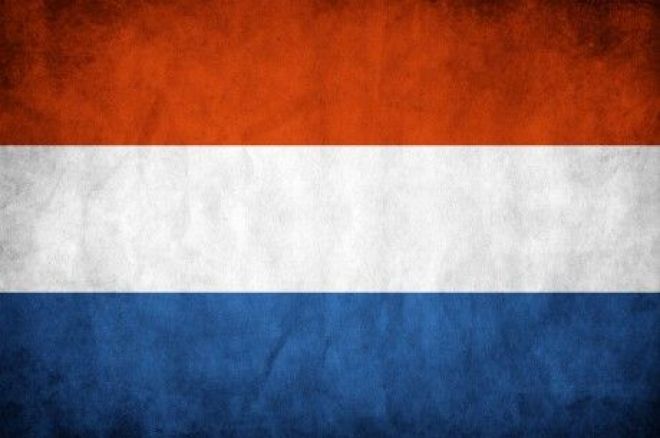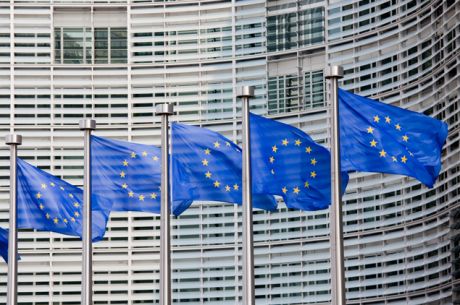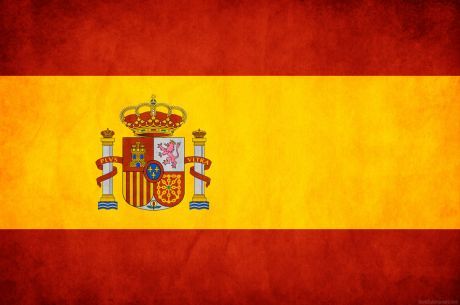Gaming Lawyer Says Holland's Online Regulation "Will Be a Huge Disappointment"


"If nothing will change, we already expect that we will have to seek damages for the hit that we see coming." — Bas Jongmans.
According to Bas Jongmans, Dutch gaming attorney from the Amsterdam-based Gaming Legal law firm, the bill that the Dutch government wants to approve to regulate online gambling is costly, discriminatory, and built over a compromise between the legislator and a lobby of international operators.
According to the language approved by the Dutch Council of Ministers on July 15, Holland's online gambling regulated market will be built around a set of norms that include a 20-percent gross revenue tax for online gambling operators, which is almost one third lower than the one applied to the country's land-based casinos.
One week after he accused the system to be "too expensive for many operators," Jongmans joined PokerNews to discuss his views on the future of the country's online market, and the way he believes that a wrong set of rules could turn what Unibet's CEO Henrik Tjärnström once defined as "a market full of potential" into a "huge disappointment."
PokerNews: In a recent interview, one of the main criticisms you had against the proposed legislation is that you consider it to be too expensive for land-based casinos. Could you expand on that?
Jongmans: Let me say that legislation, most of the time, is not focused on what is most efficient, but on what is politically acceptable. Legislation is all about compromises.
From what we see now, our feelings are that we have a lobby in place that is representing some big foreign operators, and which is influencing the Dutch government to come up with some form of legislation that will make it very hard for local Dutch entrepreneurs to enter the regulated online gambling market.
I have been guiding a group of Dutch land-based casinos operators for eight years now, and I can tell you that they were always promised that they would receive some form of compensation for the investments made so far. One of the elements of this compensation should have been the online gaming market.
After eight years of talks, we now see a legislation that practically discriminates them — if not prohibit them — to get onboard of the online market as they will not have the funds needed to make the necessary investments.
PokerNews: You say that legislation is all about compromise, but here I am having a hard time understanding where the compromise is. The Social Democrats and the Labour party were against the implementation of different tax rates for online and live gambling revenues, yet the government decided to go for it anyway. Unibet's CEO Henrik Tjärnström said that he had hopes for a 10-percent tax, and then the government decided to double that and settle for a 20-percent one. Now you mention that all local operators are unhappy, as they feel cut out from the market before this even takes off. Again, where exactly is the compromise?
Jongmans: The Dutch government, without making it too obvious, is trying to put some key operators already in a leading position. You know, you may not get the 10-percent tax rate you have hoped for, but you will still get a lot of confusion and a great outlook on acquiring a good position in the Dutch market. Especially once you close it to local entrepreneurs.
Talking about compromises, I would like to stress that we have several alternatives ready, and that we could offer the government other plans that would be even more convenient for the Dutch budget. Unfortunately, nobody has looked at those suggestions.
One of the issues is that when you introduce to the legislation some technical elements that the Dutch government probably doesn't fully understand, you can end up fooling the government and convincing it to introduce norms which they feel are very good, but that in the end simply close the market to many potential investors and operators.
PokerNews: You seem to believe that politicians do not seem to fully understand what they legislate on, which is also what we remember hearing as well from Giovanni Carboni from the European Gambling Lawyers and Advisors about Italy. The question is: what is your perception? Is the Dutch government aware of the technicalities connected to such a specific kind of legislation such as the online gambling one?
Jongmans: Let me give you an example. Two weeks ago, I was out with my family and my nephew, who is two-and-a-half years old, and he was playing with his iPad. Trust me, the way he plays with his iPad is just incredible. I am telling you this because it is obvious that technology is advancing in such a way that people from an older generation can hardly keep up. And this reflects also on legislation in general. Nowadays, you cannot plan to legislate for the next nine or 10 years because the world will be totally different by then. You need to think in the shorter term.
What we see from the Dutch government, and also from many other European legislators, is that they are just trying to keep up. But since the Dutch legislator doesn’t fully understand the technical aspects of what it is legislating on, it ends up giving too much authority to the regulator. And we have to admit that even in the board of the Dutch regulator we have people who are not fully aware of what the industry really is. This is clearly a huge problem.
PokerNews: For how things look like right now, anything could still happen. The bill could be adopted as it is, it could be modified, or it could even be completely dropped, pushing away the possibility to regulate online gambling. What do you think will happen?
Jongmans: Consultations have not been effective so far, so my prediction is that amendments in the parliament will not drastically change what is in the bill. What I think will happen is that everything will stay the same. We will have some talks, some minor changes, and that will be it.
As a result of this process, I believe that the Dutch government will realize that the regulated online market will not be an attractive place for investors. Many operators will simply not invest in Holland, and this will result in a huge disappointment.
From my point of view, what I cannot allow is that my clients, which mostly are land-based casinos, take a hit because of the tax rate included in the bill. What is going to happen is just obvious: if you charge a very high tax rate to the land-based casinos, and a lower tax rate to the online operators, the land-based ones will take a hit.
What we are truly aiming for is a dialogue. If nothing will change, and we expect so, we will need to seek damages for the hit that we already see coming.
PokerNews: Do you believe the instability of the legalization process in Holland is having costs in terms of missed investments?
Jongmans: Absolutely. We always say, "When you doubt, stay out," and right now we cannot guarantee to anyone that investments would generate any return. This is a problem as local entrepreneurs cannot afford to throw away €200,000 just to jump in the online market. Yet again, a global player may be able to do that and may even laugh about that sum. That's why we believe this is some sort of discrimination.
The government has also recently set some integrity checks that look to me as some sort of formal blackmail. According to the new norms, if a Dutch entrepreneur fails to pay any tax to the government he can immediately have his application for an online gaming license denied. But then, of course, people who have been running illegal online casinos somewhere around the world and were somehow offering their games in Holland will not be touched, because the regulator has no influence in other jurisdictions.
You know, you cannot heavily regulate and tax Dutch operators, while on the other hand you don’t have any influence on what the people are doing abroad. That is simply a mistake.
Photo courtesy of th07.deviantart.net
Get all the latest PokerNews updates on your social media outlets. Follow us on Twitter and find us on both Facebook and Google+!








